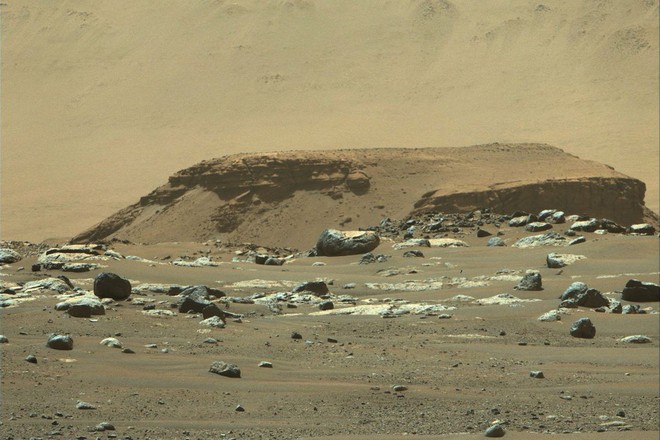Scientists recently suggested that a very large amount of water on ancient Mars could have been buried below the surface of this planet, instead of being released into space as originally planned.
Scientists recently suggested that a huge amount of water on ancient Mars could have been buried below the planet’s surface, rather than being released into space, according to a report by Science magazine. The new discovery could help explain more rationally the disappearance of water on Mars, which was a rich resource on the planet billions of years ago.
Using models and data collected from a recent probe on Mars, researchers at the California Institute of Technology found that a large amount (30-99%) of the Red Planet’s water may have disappeared from the surface by a geological process, known as crustal hydration, which causes water to hide under the rocks of Mars.
Evidence of the past existence of water on Mars can be found all over its surface, where dry lake beds and cliffs have demonstrated that the surface was shaped by liquids from over 3 billion ago. years. For years, scientists believed that the water on Mars had evaporated and disappeared into space, leaving behind a dry surface as it is now.
But this process takes a long time. The speed at which water can escape the atmosphere, compared to the total amount of water ever present on Mars, is inconsistent with scientists’ observations. “If this process lasted 4 billion years, it would only remove a small amount of water,” said one of the study’s authors.
Research shows that most of the water is lost during the Noachian period of Mars, between 3.7 and 4.1 billion years ago. During this time, water on Mars may have interacted and combined with minerals in the planet’s crust. Minerals can absorb and store water. For example, gypsum, a mineral found naturally on Mars, can hold water inside until it is heated to temperatures above 100 degrees Celsius.
This phenomenon also occurs on our Earth, but geological activities heat up deep layers of rocks and release water to the surface. Christopher Adcock, a geochemist at the University of Nevada, says water is brought to the Earth’s surface by volcanic activity.
Meanwhile, Mars does not have the same geological activities as the Earth. This explains why Mars has much more surface water than Earth. The best evidence of water on Mars is in the form of ice at the poles and in very small amounts in the atmosphere.
Last month, NASA landed the Perseverance probe on Mars’ Jezero Crater, a dry lake bed that may contain evidence of hydrated minerals and possibly fossils of microbial life.
“The rock samples taken from Jezero will help us confirm this theory,” said Bethany Ehlmann, professor of geosciences and planets at Caltech and co-author of the study.



